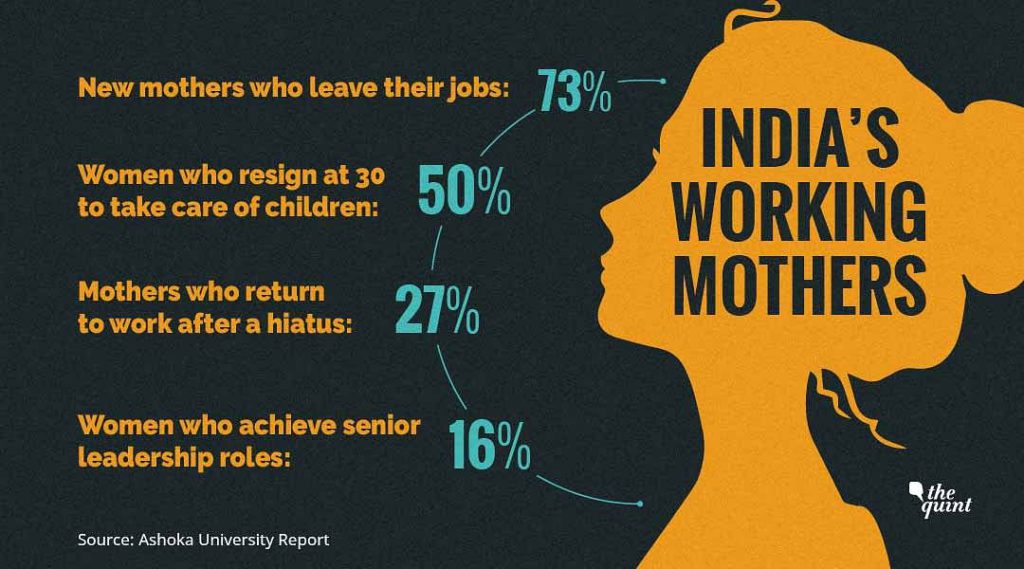
“So, Natasha, have you thought about the offer? Would you like to take it up?”
The HR lead at Pepper called me sharp at 11 am on Dec 1. Till November 30, my decision was clear as day. I loved this new role and this company of young entrepreneurs seemed like the perfect match for my energy. But on Dec 1st, it wasn’t as simple.
The day I was to say yes to Pepper, was also the day I got to know that I was pregnant.
Needless to say, both parties were surprised (all three actually if I include the husband). Pepper, with some 30 employees, most young graduates, wasn’t expecting this. I, with my four-year-long stint at my current job, so very ready to move on, wasn’t either. But we both said yes, eventually.
The Decision
The decision became simple when I imagined the day after my 6-month maternity would end. I asked myself:
Which of the two roles would motivate you to go back to work?
- The same role you had done for four years
- A challenging new role where you had to prove yourself once again
For me, it was going to be option B.
A New Chapter
So much is said about motherhood. I don’t know if I can say something new or something different. But my meta-momphosis (™) was as much about being a mother as it was about being a working mom. All my preconceived notions about being a working mom melted away. As did the anxiety of balancing the two. This brought me to the question,
What do working moms want, anyway?
Don’t be afraid to challenge us
Don’t get me wrong, I am grateful for the empathy I receive at work, especially on those tougher than usual days of pregnancy or those instances when the baby is being extra fussy. But do we really want our colleagues and seniors to tiptoe around us, afraid to ask us to challenge ourselves, push our limits, and step out of our comfort zones? I think not. Here’s the thing that employers don’t often understand: being a working mother brings with it certain superpowers. As per this report, 85% of working women say that motherhood prepares you for leadership roles and I wholeheartedly agree. From managing time better to managing people, if there’s anything that raising a little human being teaches you it is patience, productivity (getting more done in less time), and creativity to solve problems (ever tried getting your baby to eat his/her veggies?). And yet, working moms are often passed up for promotions and only 16% of working women in India actually make it to senior management. In fact, certain workplace cultures even perpetuate the idea that “working moms don’t work as hard as their peers”.

Pro-tip for employers: Make the time to help a working mother in your team chart out her career path. How can she plan her next quarter or year with you to get that promotion? What is the trajectory you see for her over the next five years even? Such honest conversations can be a great way to keep working moms motivated to continue working – even when things get tough.
Enable a flexible mindset at the workplace
My baby arrived during the pandemic and my pregnancy was a time full of anxiety and also flexibility as I could work from home. I still work from home with my nine-month-old racing around the house, nanny in tow. It is a blessing … and a curse because you’re never really able to fully disconnect from being a mommy to being a manager. Those loud screaming wails in the middle of a Zoom call make me testy but then getting to cuddle him in between meetings or every time I take a break is the best stress buster ever. We live in these amazing times where working doesn’t necessarily mean you have to miss out on your baby’s major milestones. However, these two years have also been some of the most anxious for working mothers. As per a survey by LinkedIn, a staggering 47% of women experienced more stress or anxiety with working mothers likely to get significantly impacted due to childcare distractions. So while we may have certain flexible policies in place, a flexible mindset is more than that.

Pro-tip for employers: Sensitize your team to the pressures of working moms and work to instill a flexible mindset within the company culture. This means not frowning when a new mother chooses to leave work early to pick up the baby from daycare. It means aligning her growth and success to your team’s without focusing on the minor details.
Give us more support, at home and at work
Why do you want more women in the workplace? Why support them to return to work and grow professionally? Linda Scott in The Double X Economy, The Guardian’s Best Science Book of 2020, says in her book:
“Women who work are the most reliable source of economic growth. When they are kept home because there is no affordable childcare—or because their husbands won’t let them out of the house—they lose and so do their countries.”
Simply put, more women in the workplace means more diverse opinions, better representation of your customers, higher productivity and profitability, and finally, a healthier global economy.
So when it’s a matter of the global economy, a little goes a long way. Let’s step up at home and at the workplace. Not because you have to, but because you want to.
In a surprising report that was recently published in the Work, Employment and Security journal, it was found that when women out-earned their partners, their share of the housework increased – going back up to 16 hours — in an attempt perhaps to compensate for the upturning of traditional gender stereotypes. So if you think women in senior roles have it easy, think again.

Pro-tip for employers: Have open conversations around how you can enable a culture of support for working parents. Be intentional about being allies to working women (if not for the sake of your workplace, then for the global economy). From enabling mentorship to ensuring more women’s voices are heard (especially over those loud Zoom meetings) and building a culture of gender sensitization and transparency, each baby step can have a big impact in the long run.
Snuff out the fear of having to give up work
73% of women leave their jobs after giving birth in India. Even among those who manage to return, 48 percent drop out within four months of rejoining the workforce. I have to admit – this was my biggest fear as I stepped into motherhood. Would I have the right means and motivation to go back to work? I am among the lucky ones who have found their way back and feel more determined than ever to continue working. But that statistic is a scary reality for all women.
Instead of evading these issues, confront them and have honest conversations with your female employees. What will make them stay? What do working mothers want? Ask and you shall find. A big part of building a culture of growth, inclusivity, and ownership is addressing the elephant in the room. As India sees a startup revolution like never before, with young founders across both genders, with a hustle culture that demands we move faster than the speed of light itself, it is more important than ever to fix these legacy problems associated with gender. I believe, ever so strongly, that this new generation of entrepreneurs building for the long-term has a unique ability, foresight, and – perhaps, most importantly – the intention to fix sociological mistakes of the past. And it is an intention, above all else, that will get us there.
Natasha Puri leads content marketing at Pepper Content. She is currently enjoying a fantastic work-life balance with her nine-month-old baby Jagrut or Jug.
Latest Blogs
Learn how to rank on AI search engines like ChatGPT, Perplexity, and Gemini by optimizing your content for authority, structure, and relevance. Stay ahead in AI-driven search with this strategic guide.
Explore the best healthcare SEO services for your medical practice. Improve online visibility and effectively reach more patients in need of your services.
Discover top social media agencies specializing in banking solutions, enhancing financial services and driving engagement.
Get your hands on the latest news!
Similar Posts

B2C Marketing
5 mins read
Top Choices for Best Content Marketing Services in B2B Industries

Artificial Intelligence
5 mins read
How Free AI Tools for Content Creation Can Boost Your Content Strategy

Artificial Intelligence
6 mins read